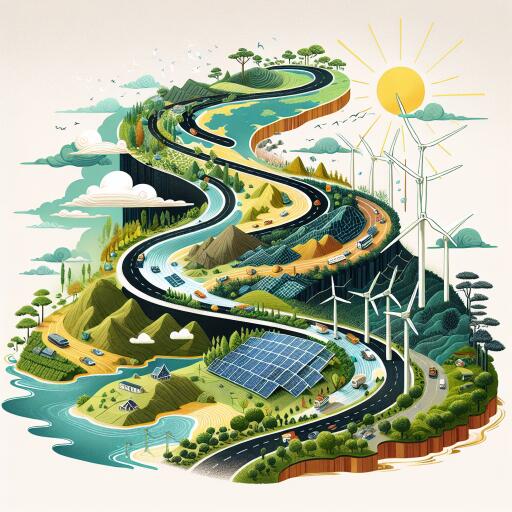
Vietnam’s Rocky Road to Climate Resilience
In the global arena of climate change, Vietnam stands out for its heightened vulnerability and the formidable challenges it faces on its path toward environmental sustainability and resilience. The nation’s geographical endowments, characterized by an extensive coastline and numerous river basins, place it directly in the path of severe climatic phenomena like typhoons, inundations, and rising sea levels. Coupled with swift economic advancement, these factors contribute to a scenario where both natural and anthropogenic factors intertwine to amplify the threat of climate change.
The repercussions of climate change are not a distant threat for Vietnam; they are an immediate and escalating challenge. Ranked as one of the nations most susceptible to the adverse impacts of climate shifts, especially within the ASEAN+3 contingency, Vietnam’s geography amplifies its risk. Its densely populated coastal areas and vital waterways are perpetually at risk from extreme weather events, evidencing the urgent need for robust adaptive measures and strategies.
With its economic engine running at full throttle, Vietnam has witnessed a simultaneous surge in its consumption of energy and output of greenhouse gases (GHG). The past two decades have seen these figures multiply, painting a stark picture of the environmental cost of its rapid development. The increasing reliance on industrialization and urbanization spells a continued upswing in GHG emissions unless decisive actions are taken.
To combat these escalating challenges, Vietnam is gradually laying the groundwork for a resilient future. Recognizing the need for a multi-pronged approach, the nation has embarked on projects to establish early warning systems and robust infrastructural defenses like dikes and seawalls. These initiatives are crucial, yet they underscore the necessity for a targeted focus on areas most at risk – particularly the coastal and riverine regions that bear the brunt of climate adversities.
In an encouraging move toward a sustainable energy trajectory, Vietnam’s Power Development Plan 8 (PDP8), approved in May 2023, sketches a roadmap for the phased elimination of coal power by the 2040s. However, transitioning to a low-carbon economy demands an early and consistent embrace of green technologies and mitigation practices. Instruments like carbon pricing tools and rigorous emission criteria are vital in this transition. Promoting a green economy through the prism of international cooperation, alongside the adoption of innovative solutions such as Carbon Capture, Utilization, and Storage (CCUS), represents a significant stride in the right direction. The synthesis of government willpower and private sector dynamism is essential in vaulting the nation towards the apex of green infrastructure and securing the requisite financial backing.
The journey towards climate resilience for Vietnam is fraught with hurdles, yet it is also lined with opportunities. As the nation forges ahead, the trajectory it chooses will be instrumental in shaping its environmental legacy and securing a sustainable lifeline for future generations. Embracing green technology, enhancing infrastructure, and fostering global partnerships are keys to unlocking a resilient and sustainable future for Vietnam.





Leave a Reply